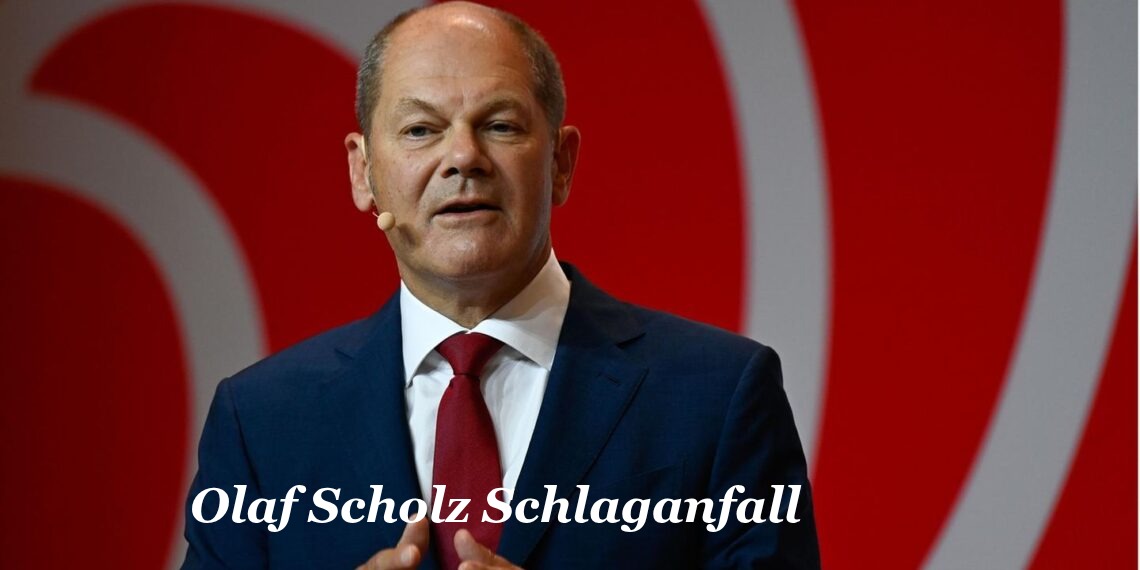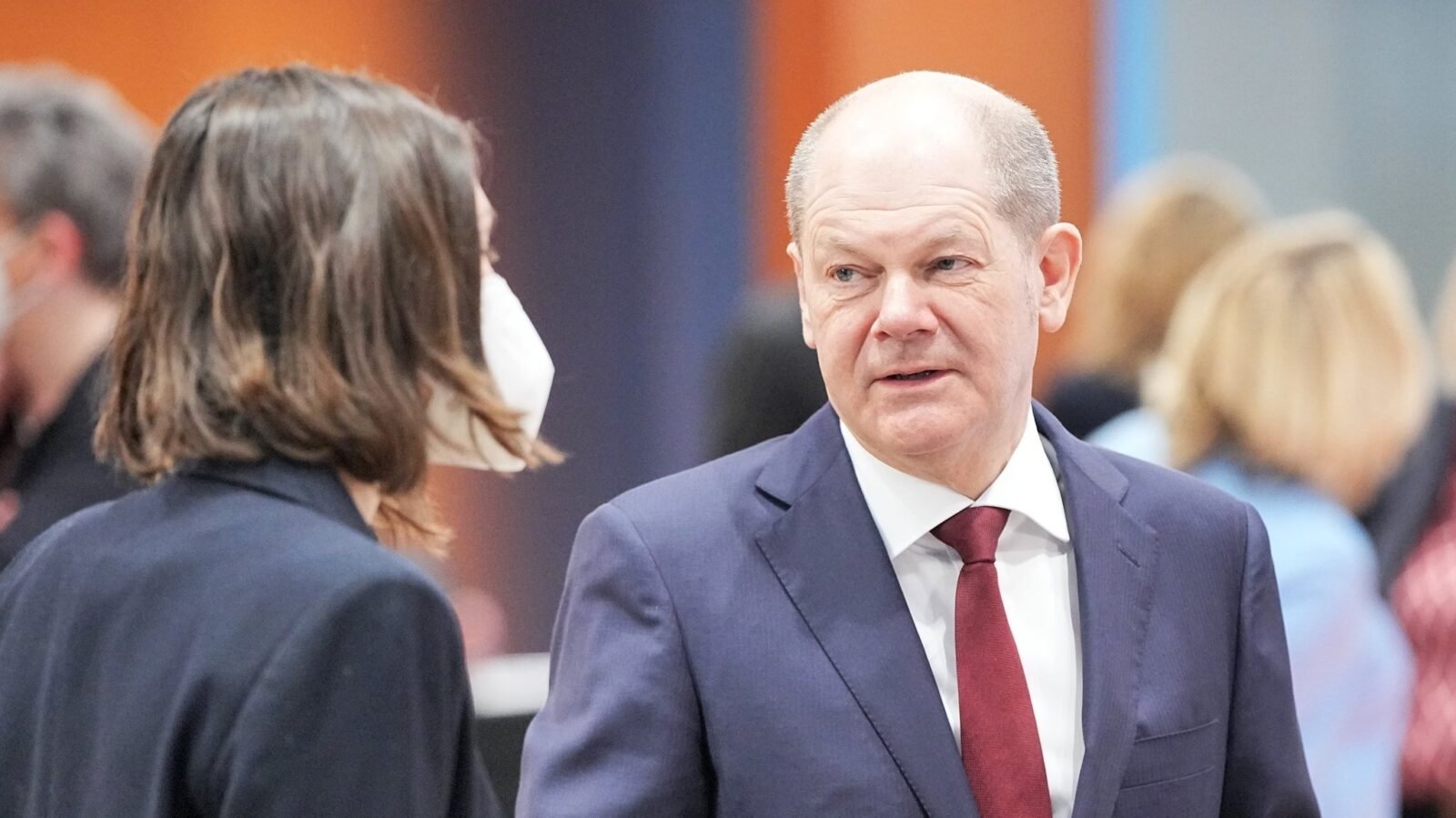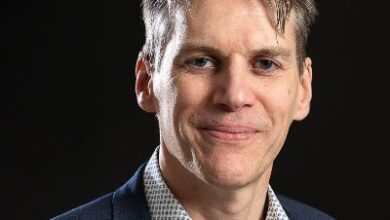Olaf Scholz Schlaganfall: Separating Fact from Fiction

Introduction: Why the Topic Sparked So Much Attention
Olaf Scholz Schlaganfall In recent years, the health of political leaders has become a subject of intense speculation. Olaf Scholz, the current German Chancellor, has not been an exception. The keyword “Olaf Scholz Schlaganfall” (which translates to Olaf Scholz stroke) began circulating online, leading many to question whether the Chancellor had suffered a serious medical emergency. In today’s digital age, even the slightest change in a leader’s appearance or behavior can trigger rumors that spread like wildfire.
The attention on Olaf Scholz Schlaganfall health also highlights a broader societal trend: people are not just concerned about politics, but about the physical and mental stamina of those making decisions on their behalf. This makes sense—when someone is leading one of Europe’s most powerful countries, the stakes are high, and their health inevitably becomes a matter of public interest.
But how much of this discussion is based on facts, and how much is speculation? To understand the truth behind the phrase “Olaf Scholz Schlaganfall,” we need to look at his background, his recent health incidents, and the way the media has shaped the narrative.
Who is Olaf Scholz? A Quick Background

Before diving into the rumors, it’s important to remember who Olaf Scholz Schlaganfall is. Born in 1958 in Osnabrück, Scholz has had a long career in German politics. He is a member of the Social Democratic Party (SPD) and has held several prominent roles, including Mayor of Hamburg, Federal Minister of Finance, and eventually Chancellor of Germany since December 2021.
Known for his calm, pragmatic style, Olaf Scholz Schlaganfall has often been described as a politician who avoids unnecessary drama. His steady approach has earned him both admiration and criticism. Admirers view him as a reliable leader who doesn’t get easily rattled, while critics sometimes call him too cautious or even “boring.” However, in the unpredictable world of politics, such steadiness can be seen as a strength.
Given his central role in European politics, any rumor or report about his health naturally gains huge attention. Whether it’s a minor injury or speculation about something as serious as a stroke, the public and media are quick to analyze every detail.
The Origin of the Schlaganfall Rumors
The speculation about Olaf Olaf Scholz Schlaganfall suffering a stroke didn’t just come out of nowhere. It was fueled by a few specific events. In 2023, Scholz suffered a jogging accident that left him with visible injuries to his face. He later appeared in public wearing an eye patch, which immediately triggered discussions online. Some people questioned whether his appearance could be linked to a stroke or other health issues.
Social media platforms played a big role in amplifying these rumors. Images of Olaf Scholz Schlaganfall eye patch were shared thousands of times, often with captions or comments suggesting serious medical conditions. Even though his office clarified the situation and explained that it was a jogging accident, the idea of a “Schlaganfall” stuck in people’s minds.
This is a common phenomenon in the age of fast news cycles. Once a rumor starts, it can take on a life of its own, regardless of whether it is true. The term “Olaf Scholz Schlaganfall” became a keyword that people searched out of curiosity, further fueling speculation.
Did Olaf Scholz Really Have a Stroke?
To answer this question directly: no, there is no evidence that Olaf Scholz has suffered a stroke. Official statements from the German government have consistently denied such claims, and Scholz himself has appeared in public, continuing with his regular duties as Chancellor. His jogging accident and subsequent eye patch were well-documented, but they were unrelated to any neurological event like a Schlaganfall.
Still, the persistence of the rumor tells us something important about the way health and politics intersect. People often project their concerns onto leaders, interpreting even minor incidents as signs of something bigger. In Scholz’s case, a visible injury was enough to spark speculation about his overall fitness to lead.
Moreover, in politics, perception can sometimes be just as powerful as reality. Even though Scholz did not have a stroke, the rumor created a narrative that some of his opponents could use against him, subtly questioning his health and vitality.
Why Health Rumors Around Leaders Spread So Fast
The case of Olaf Scholz Schlaganfall is not unique. Around the world, leaders have faced health-related rumors. From U.S. presidents to European prime ministers, any sign of physical weakness becomes headline material. But why does this happen?
First, there is the natural curiosity of the public. Leaders are not just politicians; they are symbols of their nations. When something happens to them, it feels personal to citizens. Second, the health of a leader is directly tied to national stability. If a leader were to suffer a serious condition, it could affect decision-making, international negotiations, and even economic confidence.
Finally, in today’s media environment, rumors spread faster than ever before. A single photograph, taken out of context, can fuel conspiracy theories that last for months. In Scholz’s case, the image of his eye patch became a symbol that people connected with all sorts of health narratives, even when the facts didn’t support them.
How Olaf Scholz Responded to the Rumors
One of the most notable aspects of the “Olaf Scholz Schlaganfall” speculation is how he handled it. Instead of ignoring the questions, Scholz leaned into humor. He openly shared photos of himself with the eye patch and even joked about looking like a “pirate.” This approach helped to humanize him and defuse some of the tension around the rumors.
By taking control of the narrative, Scholz demonstrated a communication strategy that many leaders could learn from. Rather than allowing misinformation to dominate, he addressed it directly in a lighthearted way. This not only reassured the public but also showcased his ability to remain calm under scrutiny.
Still, his response didn’t completely silence the speculation. For some people, once the idea of a Schlaganfall had entered their minds, it was difficult to let go. This reflects a deeper truth: rumors can often outlive facts, especially when they involve high-profile figures.
The Larger Discussion: Should Leaders’ Health Be Private or Public?
The “Olaf Scholz Schlaganfall” rumor also raises an important ethical question: how much of a leader’s health should be considered private, and how much should be shared with the public? On the one hand, leaders are human beings with a right to personal privacy. On the other hand, their health directly impacts their ability to govern, and citizens have a legitimate interest in knowing if their leader is unfit for duty.
Different countries handle this issue in different ways. In some places, leaders are expected to disclose detailed medical reports regularly. In others, health information is shared only when absolutely necessary. Scholz’s case sits somewhere in the middle: while the German government denied false rumors, they did not feel the need to provide detailed medical documents.
This balance between transparency and privacy will likely continue to be debated, especially as leaders age and public scrutiny intensifies.
Conclusion: Lessons from the Olaf Scholz Schlaganfall Rumor
In the end, the phrase “Olaf Scholz Schlaganfall” is more about perception than reality. There is no evidence that Scholz has suffered a stroke, but the rumor has persisted because of how modern media operates and how people interpret the health of political leaders.
The story offers a few important lessons. First, it shows how quickly misinformation can spread when people are eager for explanations. Second, it demonstrates the importance of leaders addressing rumors head-on, as Scholz did with humor and openness. And finally, it forces us to think more carefully about the balance between respecting a leader’s privacy and ensuring transparency in governance.
For Olaf Scholz, the Schlaganfall rumor may eventually fade, but it highlights the challenges that modern leaders face—not only in policy and politics but also in managing their personal image in a world that never stops watching.



